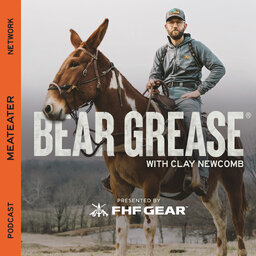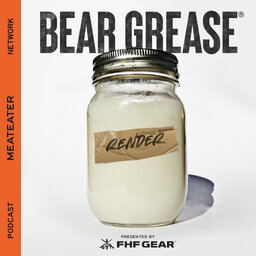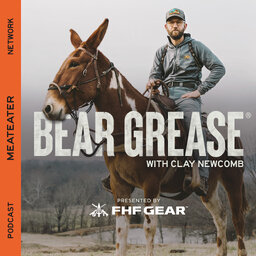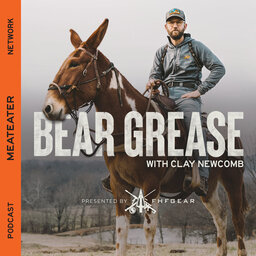Ep. 212: BEAR GREASE [RENDER] - New Pup, Clays Unconventional Farrier Skills, and Mississippi Bears
Fresh back from the MeatEater Live Tour, Clay Newcomb is joined by the Render Crew and Anthony Ballard, Bear Program Leader for the Mississippi Department of Wildlife, Fisheries, and Parks. He discusses the history, research, current status and developments of the black bear population in the state of Mississippi. Bear Newcomb talks about his new Mountain Feist puppy, Osage. Misty Newcomb shares about her new website, thenewcombfarm.com. Josh "Landbridge" Spielmaker and his wife, Kristie Spielmaker, tell about their experience attending the MeatEater Live Tour in Anaheim, California.
Connect with Clay and MeatEater
Clay on Instagram
MeatEater on Instagram, Facebook, Twitter, and Youtube
Shop Bear Grease Merch
In 1 playlist(s)
Bear Grease
Home to the Bear Grease podcast and Bear Grease Render show with Clay Newcomb, and This Country Life…Social links
Follow podcast
Recent clips

Ep. 410: Ty Evans - Transformative Mulemanship and Free Agency
51:16

Ep. 408: Render - Real Talk About Men's Health
1:21:04

Ep. 405: Revisiting Jerry Clower
1:04:38
 Bear Grease
Bear Grease